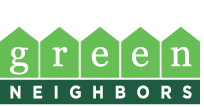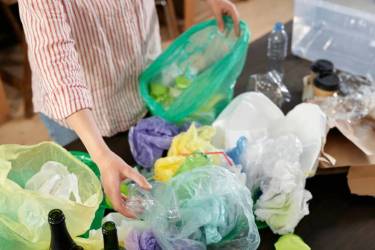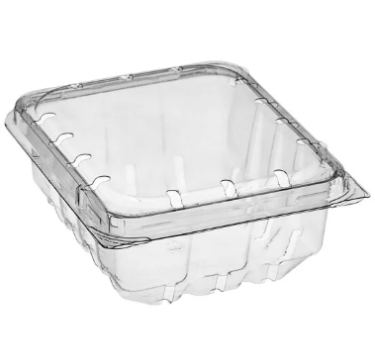Green Blog
Going beyond the bin
by Linda Frederiksen, Composter Recycler Class of 2025
Americans produce a lot of trash. In Clark County, residents generate about 1,614 pounds of landfilled waste per person per year, or around 4.4 pounds per day, according to a Regional Solid Waste System Study conducted in 2021.
Where does all that material go?
In Clark County, waste is collected in curbside bins or containers at multifamily complexes and serviced by Waste Connections of Washington. The material enters a complex system of sorting, recycling, and landfill disposal. Garbage is hauled to the Finley Buttes Landfill in Boardman, Oregon. Some material is incinerated, a small portion is composted, and yet another portion enters a recycling stream.
What about all the waste that isn't accepted in the curbside recycling bins?
Instead of throwing food waste into the garbage, where it will be transported hundreds of miles to a landfill to generate harmful methane gas, what might we do with it instead?
How about fluorescent lights, rechargeable batteries, broken holiday lights, furniture, and other difficult-to-dispose items; can any of these things be recycled? And what about the ubiquitous plastic clamshells so much of our food now seems to be packaged in – is there a better way to dispose of it than throwing it in the garbage? How do I generate less waste?
How to go beyond the bin with local disposal options
The reality is there is no single solution to waste management. Instead, we have a hierarchy of disposal alternatives that include better ways to reduce, reuse, and recycle our mountains of stuff. Although these alternatives are often perceived as costly and confusing, there are free, accessible options!
Download the RecycleRight app (available on the Apple App Store and Google Play Store) or use the Recycling A-Z Directory to search materials, receive service alerts and calendar notifications about your waste services.
Plastics that are not accepted in the curbside bin
- Plastic clamshells are accepted for recycling at Clark County New Seasons Market locations. Clamshells and other plastics can also be dropped off at Unitarian Universalist Church's Beyond Curbside program.
- Plastic film including bags, bubble wrap and plastic shipping envelopes can be dropped off for recycling at several grocery stores including Safeway, Albertsons, WinCo, Fred Meyer and New Seasons.
Foam
- Foam packaging peanuts can often be reused a local shipping store, call to confirm.
- Block foam can be dropped off for recycling at Earth Friendly Recycling for a fee.
Food scraps
- If you live within the City of Vancouver or the City of Ridgefield and have curbside Organics service, you can place all food scraps, along with yard debris, in your existing teal or green organics cart.
- If you do not live within the City of Vancouver or the City of Ridgefield, or if you live in a multifamily unit (apartment, condo, etc.), you can drop off all food waste at a We Compost Community Hub.
Clothing and home furnishings
- Donate gently used clothing and home furnishings to local thrift stores.
- Donate hardware, tools, garden supplies and furniture to Habitat for Humanity ReStore.
- Just Porch It is a new program now available in Clark County. They provide curbside pick-up of items, including clothing and accessories, towels, linens, fabric, bedding and small household goods. "If it fits in a bag, we can pick it up!"
Batteries and electronics
- Search for free battery drop-off locations on the RecycleRight app or A-Z Directory.
- Household batteries (alkaline and rechargeable AA, AAA, C, D, button cell, 9-volt, and other similar-sized batteries) can be safely recycled on top of your curbside recycle cart. Tape the ends and place household batteries in a sealed, clear plastic bag and place on top of your recycle cart lid. DO NOT include lithium-ion, vehicle or other lead acid batteries. NEVER place batteries inside of the garbage or recycle cart.
- For a full list of electronic waste recycling options, visit the RecycleRight app or Recycling A-Z Directory.
Optional paid subscriptions
A more convenient, but also more expensive option, is to use a subscription specialty recycling service like RecyclePlus or Ridwell, which is for households located in limited-service areas. Subscription services collect foam and other select items at the doorstep for recycling.
Top five tips for better home recycling
1. Get started
- Commit to making conscious decisions about waste disposal and recycling.
- Get the facts – learn more about local guidelines and options available using the RecycleRight app or Recycling A-Z Directory.
- Take an online or in-person class or workshop. The Clark County Composter Recycler and City of Vancouver RecycleU program offers free workshops.
2. Set up a household recycling system in an accessible and convenient area like a garage, utility room, porch, or deck.
3. Designate specific containers for materials sorting, such as paper and cardboard, food grade glass, plastics, textiles, batteries and other categories of recyclables.
4. Gather, clean and sort items to be recycled as they are used. For example, rinse out plastics and cans, tape batteries, and collect plastic film separately.
5. Make it a habit. Before throwing anything away, use the Recycling A-Z Directory to identify how and where items can be reduced, reused, or recycled. Does doing better require more time/energy/thought/effort/preparation/planning? It does, without question. It's not easy being green. Does it have a small but positive impact on our community? Yes, it does. For the planet, isn't it the least we can do?



